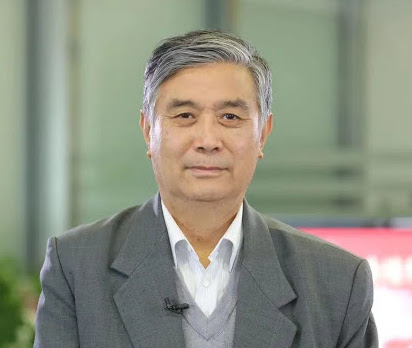
File photo of Zeng Guang, chief epidemiologist at the Chinese CDC (Photo: China.org.cn)
By halting funding to the World Health Organization, the US is only trying to divert attention from its failure to handle its domestic epidemic, China's top epidemiologist said on Wednesday, noting that the US decision is "unethical."
In a speech at the White House, US President Donald Trump accused the WHO of "severely mismanaging and covering up the spread of the coronavirus." Trump criticized the international health agency for making a "disastrous" decision to oppose travel restrictions from China.
"This is a very bad sign, but can the US defeat its domestic epidemic by halting funding to the WHO?" asked Zeng Guang, chief epidemiologist at the Chinese Center for Disease Control and Prevention.
Zeng told the Global Times that the world is making efforts to fight the COVID-19 pandemic and now is the right time for the WHO to play its role, but the US is only trying to divert attention by halting funding to the organization. "The US has not responded to the epidemic properly and its accusations against the WHO go against the facts. This is unethical and will only make it more isolated in the world."
"It is no longer a world of unilateralism, but multilateralism," Zeng said, noting that the US withdrawal of funds may not have a domino effect, as other countries may not follow the US lead.
According to the introduction of the WHO, its program funds come mainly from two sources - assessed contributions made by member states relative to their wealth and population, and also voluntary contributions.
The US is the biggest financial contributor to the WHO for 2020-2021, accounting for 22 percent of the total assessed contributions from the organization's member states, according to WHO data.
Zeng said the US suspension of funds to the WHO won't impact the international health organization in its sharing of information with the world, but may result in a shortage of funds for staff salaries and some projects. As the US is yet to declare that it will withdraw from the WHO, US officials will continue to attend WHO meetings, which is quite disgraceful, Zeng said.
Commenting on whether China is considering increasing its funding for the WHO, Zeng said it is within China's capability to support the organization financially, but the WHO should not be backed only by one nation. Worldwide nations should jointly increase support for the WHO, otherwise the US may use this as an excuse to attack other countries.
The data issued by the WHO said China accounted for 12 percent of total assessed contributions for the 2020-2021 period.
Assessed contributions have declined as an overall percentage of the program budget and have accounted for less than one quarter of the organization's financing for years. The balance is made up through voluntary contributions, the WHO said.
But assessed contributions by member states remain a key source of financing for the WHO, as it provides a level of predictability and helps to minimize dependence on a narrow donor base, allowing resources to be aligned to the program budget.


